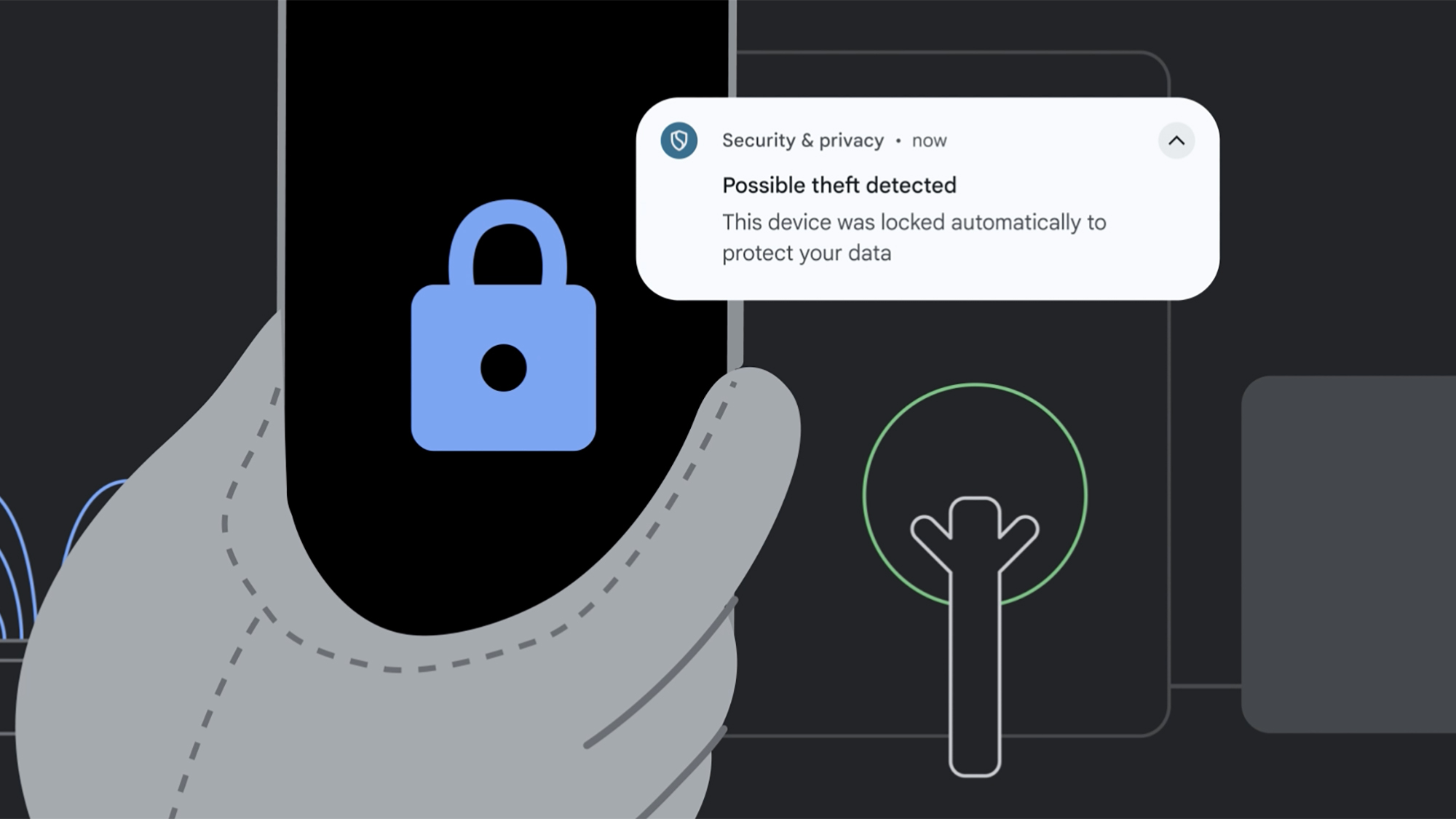Android Theft Detection Lock is now rolling out – and here's what it means for your phone
More peace of mind

Back in May we heard about a new Theft Detection Lock feature coming to Android phones, and the functionality is now apparently rolling out to users – adding an extra level of protection in case a phone should get swiped.
This has been spotted by well-known tipster Mishaal Rahman, and it seems that Brazil is getting the update first. The rest of the world should catch up before too long: Google had said the feature would be showing up on phones "later" in 2024.
In the words of Google, Theft Detection Lock will "automatically recognize suspicious signals and proactively protect your data on the device". In other words, it attempts to detect when someone has swiped your phone and takes action.
Artificial intelligence algorithms are deployed to identify when a phone has been nicked: Google says the AI is looking out for "common motion associated with theft", which probably means a quick yank followed by speedy travel away from a scene.
Lock it down
Android's theft detection lock feature is finally starting to roll out!The feature automatically locks your phone when it detects your phone has been snatched from your hand. It uses data from your phone's accelerometer and gyroscope and checks if common motions associated with… pic.twitter.com/tQcoZdpDs9August 16, 2024
As the name suggests, Theft Detection Lock will lock your phone if a theft could be in progress. If Android thinks your phone has been snatched but it hasn't, all you'll have to do is unlock it again to get back to your apps.
The feature will eventually be making its way to all devices running Android 10 or higher, so that's most modern devices covered. If your phone isn't made by Google, then it might take a little longer to reach your device.
This is actually part of a suite of protection features being introduced on Android. Your phone will also lock down if there are lots of failed authentication attempts in a row, or if the phone is taken offline for an extended period of time.
Get daily insight, inspiration and deals in your inbox
Sign up for breaking news, reviews, opinion, top tech deals, and more.
What's more, whether you're on Android or iOS, you should make sure your phone is registered with the built-in location tracking feature: it means you'll be able to lock and even wipe your handset remotely, if it should happen to get lost or stolen.
You might also like

Dave is a freelance tech journalist who has been writing about gadgets, apps and the web for more than two decades. Based out of Stockport, England, on TechRadar you'll find him covering news, features and reviews, particularly for phones, tablets and wearables. Working to ensure our breaking news coverage is the best in the business over weekends, David also has bylines at Gizmodo, T3, PopSci and a few other places besides, as well as being many years editing the likes of PC Explorer and The Hardware Handbook.